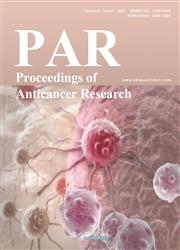An Evaluation of the Clinical Efficacy and Safety of Ixazomib for Relapsed/Refractory Multiple Myeloma
引用次数: 0
Abstract
Objective: To investigate the clinical efficacy and safety of ixazomib in the treatment of relapsed/refractory multiple myeloma (RRMM). Methods: The clinical data of 20 patients with RRMM admitted to the hospital from January 2020 to January 2022 were analyzed retrospectively. All patients were treated with ixazomib-based chemotherapy regimen (IRD regimen 13 cases; ID regimen 7 cases). The objective response rate (ORR) and adverse events (AEs) were observed. Results: All 20 patients received two to seven courses of treatment, in which the median was three courses. One patient had CR, four patients had VGPR, seven patients had PR, two patients had SD, and six patients had PD. The ORR was 60.00% (12/20), and 25.00% (5/20) of them had VGPR or more. The ORR of patients with previous treatment lines ? 3, ISS stage III, and high-risk cytogenetic was lower than that of patients with previous treatment lines < 3, ISS stage I/II, and low-risk cytogenetics. The main AEs include anemia, thrombocytopenia, neutropenia, nausea and vomiting, diarrhea, constipation, and respiratory tract infection, most of which are grade I/II. Conclusion: Ixazomib is effective in the treatment of RRMM in some patients, and the AEs are controllable. Patients who had received less than 3 lines of treatment in the past, with ISS stage I to II and low-risk cytogenetics had better treatment effect.伊沙佐米治疗复发/难治性多发性骨髓瘤的临床疗效和安全性评价
目的:探讨依沙唑米治疗复发/难治性多发性骨髓瘤(RRMM)的临床疗效和安全性。方法:回顾性分析2020年1月至2022年1月收治的20例RRMM患者的临床资料。所有患者均采用以依沙唑米为基础的化疗方案(IRD方案13例;ID方案7例)。观察客观缓解率(ORR)和不良事件(AE)。结果:所有20名患者均接受了2至7个疗程的治疗,其中中位数为3个疗程。1例患者有CR,4例患者有VGPR,7例患者有PR,2例患者有SD,6例患者有PD。ORR为60.00%(12/20),其中25.00%(5/20)患者有VGPR。既往接受过治疗的患者的ORR?3、ISS III期和高风险细胞遗传学的患者低于既往治疗系列<3、ISSI/II期和低风险细胞遗传学患者。主要不良事件包括贫血、血小板减少、中性粒细胞减少、恶心呕吐、腹泻、便秘和呼吸道感染,大多数为I/II级。结论:伊沙佐米治疗部分RRMM疗效确切,不良反应可控。过去接受过少于3种治疗的ISS I至II期和低风险细胞遗传学患者的治疗效果更好。
本文章由计算机程序翻译,如有差异,请以英文原文为准。
求助全文
约1分钟内获得全文
求助全文

 求助内容:
求助内容: 应助结果提醒方式:
应助结果提醒方式:


